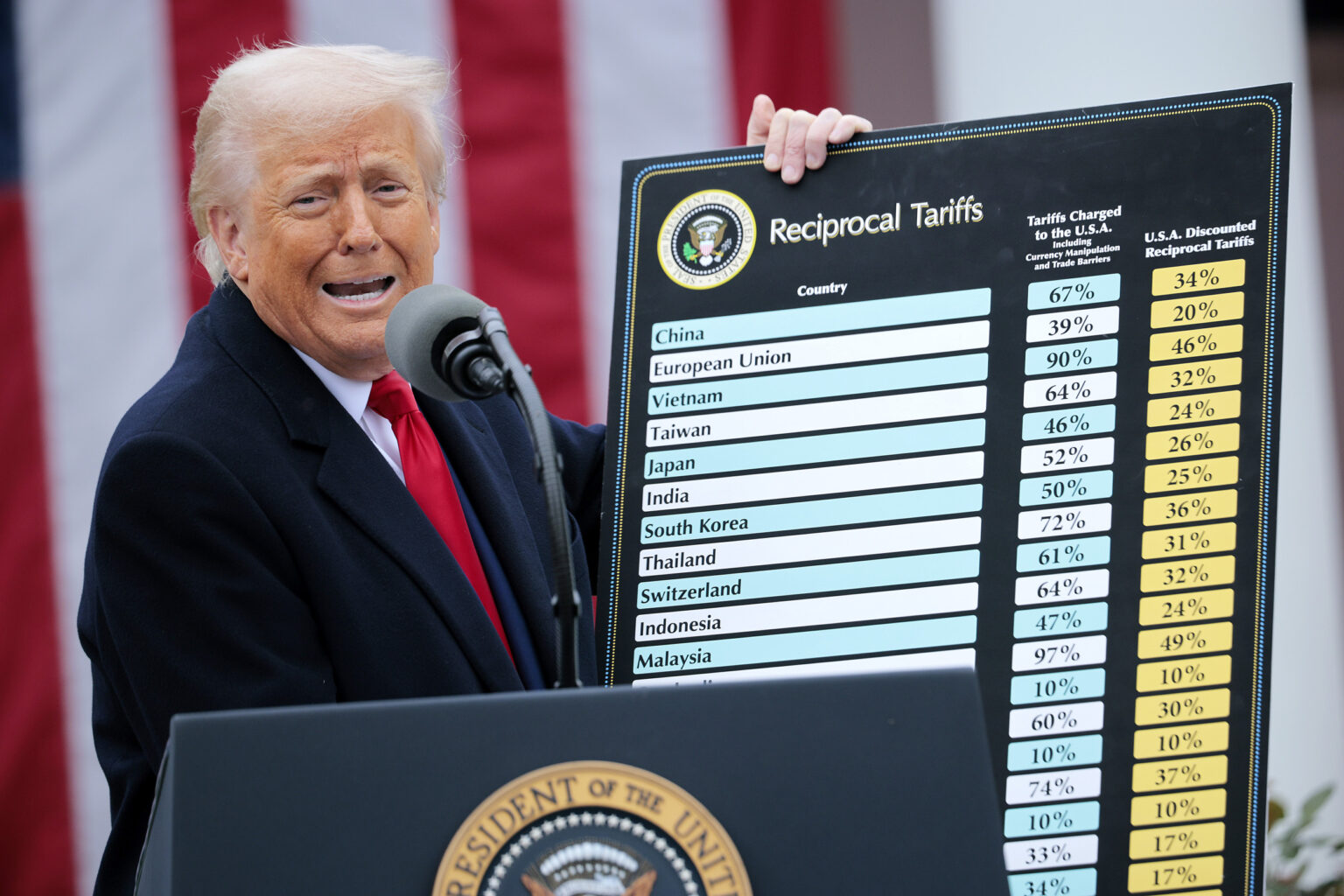President Donald Trump has levied wide-ranging tariffs on nearly every trading nation in the world. But how could this affect your invested pensions?
Why It Matters
Millions of Americans hold retirement accounts, helping them get ahead and save for later life. Various plans, such as IRAs and 401(k)s, are invested in stocks, bonds, and target-date funds.
Global stock markets fell on Thursday as investors reacted to Trump’s sweeping announcements on tariffs. Increased tariffs can lead to market volatility and lower returns for pension funds invested in the stock market, which comes at a time when saving for retirement is becoming more difficult than ever.
What To Know
“Tariffs can significantly affect investment portfolios and retirement savings by increasing costs for manufacturing, tech, and consumer goods sectors, potentially lowering stock prices and amplifying market volatility, impacting long-term vehicles like 401(k)s and IRAs,” Phillip Battin, president and CEO at Ambassador Wealth Management, told Newsweek.
Companies will face higher costs due to tariffs—whether from more expensive raw materials or restricted access to foreign goods—so they may also see their profit margins shrink. This, in turn, can reduce their stock values, affecting pensions that hold these equities.
Tariffs can also contribute to inflation as businesses pass on higher costs to consumers. While it may be too early to tell at this stage, “rising inflation and rate hikes from the Fed could limit that upside and weigh on overall economic growth,” Michael Martin, vice president of market strategy at TradingBlock, told Newsweek. This can negatively impact bond prices, and since many pension funds allocate a portion of their portfolios to bonds for stability, rising interest rates could lower their fixed-income returns.
What People Are Saying
Michael Martin, vice president of market strategy at TradingBlock, told Newsweek: “It’s hard to see any real upside for American investors in Trump’s latest sweeping tariffs, which target an astonishing 180 countries. The S&P 500 dropped over 3% on the news — and while there’s a case to be made that these tariffs might help the U.S. economy long-term, the short-term outlook is full of chaos. And if there’s one thing markets dislike, it’s uncertainty.”
Rick Miller, financial planner and investment advisor at Miller Investment Management, told Newsweek: “While uncertainty increases market volatility, a more truly free trade environment will result in upward effects on the stock market. So, take advantage of the dips on quality companies and buy low or lower. Long-term investors will ultimately be the winners.”
Pawan Jain, interim chair at the department of finance, insurance, and real estate at Virginia Commonwealth University, told Newsweek: “For those approaching retirement, this may be a smart time to reassess your asset allocation. Overexposure to sectors or international stocks vulnerable to trade disruptions can lead to unnecessary stress. On the other hand, younger investors with years to go before retirement are often best served by staying the course. History shows that making emotional investment decisions in response to political headlines often results in missed opportunities and poorly timed moves.”
What’s Next
Stock markets frequently rise and fall, so whether markets recover in the coming days and weeks remains to be seen.
“Trump’s latest tariff announcements have certainly shaken the markets, but they don’t necessarily signal disaster for American retirement savings,” Jain said. “While short-term volatility is likely, the long-term impact will depend on whether trade tensions continue to escalate. If they don’t, much of this turbulence could prove to be temporary.”
Read the full article here

